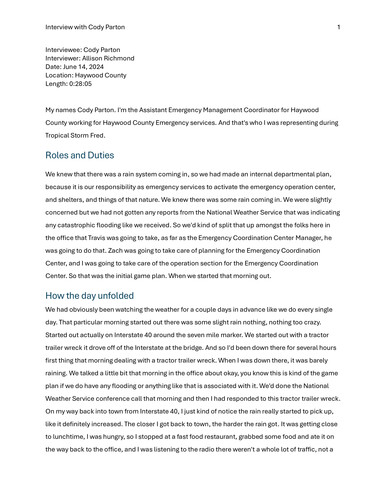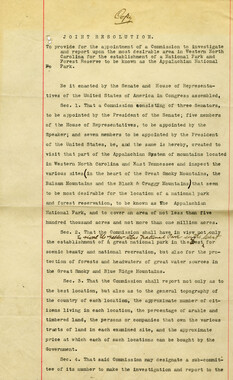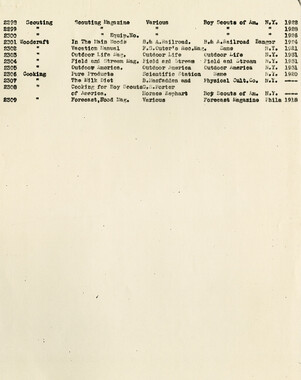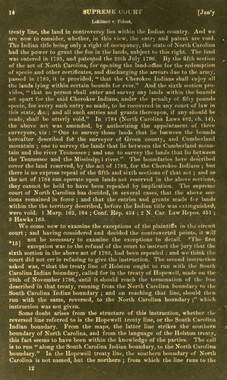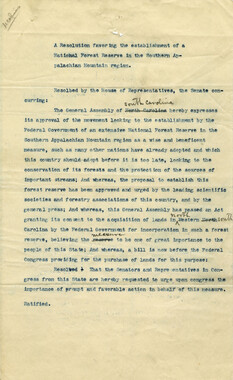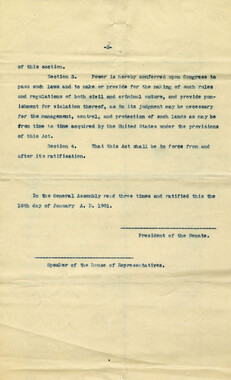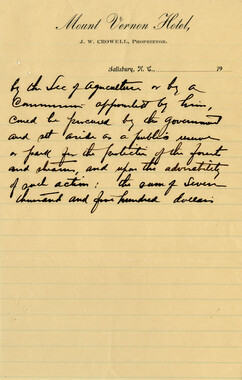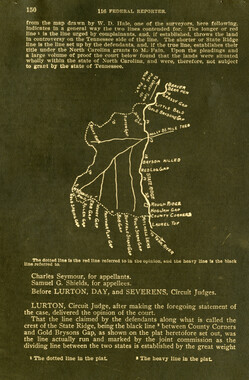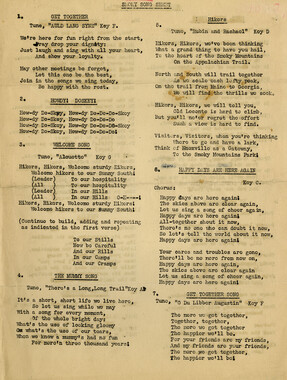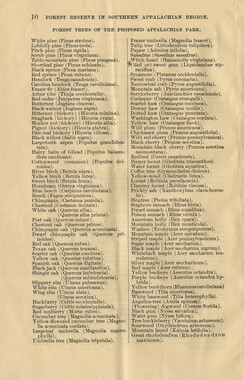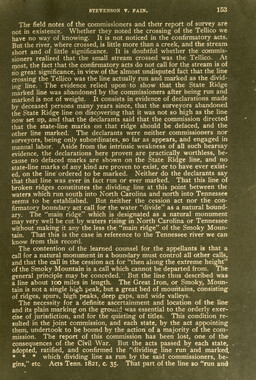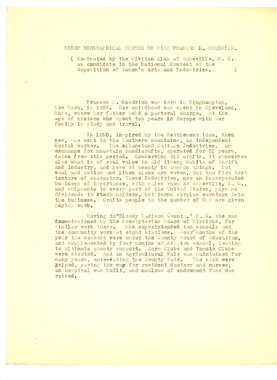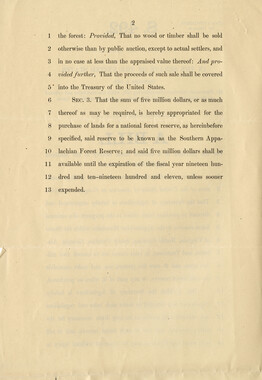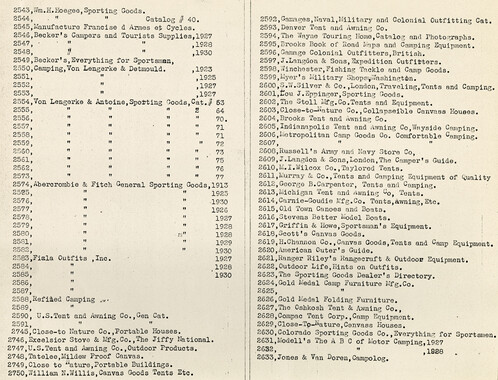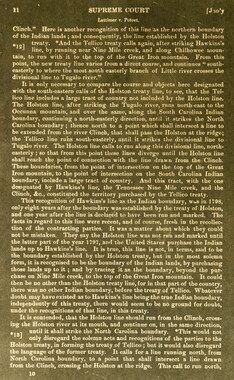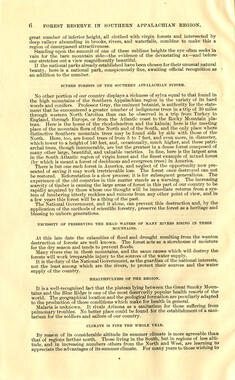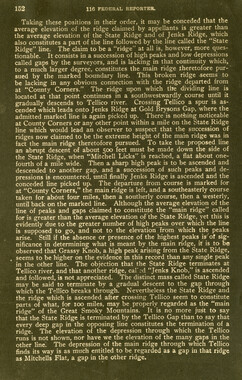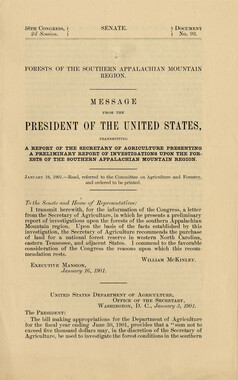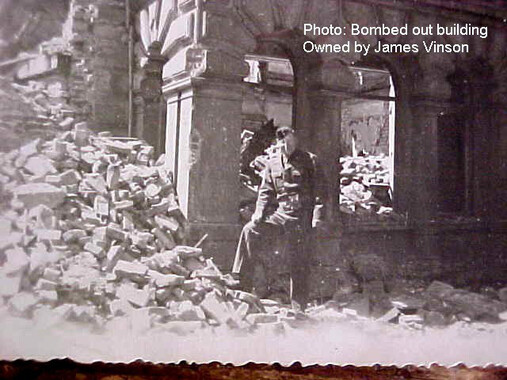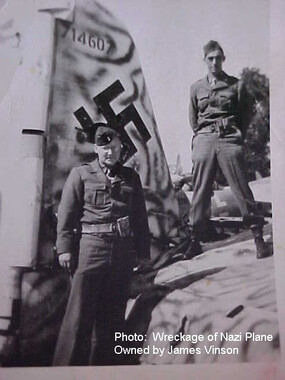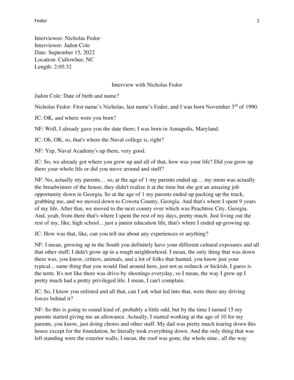Western Carolina University (21)
View all
- Canton Champion Fibre Company (2308)
- Cherokee Traditions (291)
- Civil War in Southern Appalachia (165)
- Craft Revival (1942)
- George Masa Collection (137)
- Great Smoky Mountains - A Park for America (3080)
- Highlights from Western Carolina University (422)
- Horace Kephart (973)
- Journeys Through Jackson (159)
- LGBTQIA+ Archive of Jackson County (89)
- Oral Histories of Western North Carolina (318)
- Picturing Appalachia (6617)
- Stories of Mountain Folk (413)
- Travel Western North Carolina (153)
- Western Carolina University Fine Art Museum Vitreograph Collection (129)
- Western Carolina University Herbarium (92)
- Western Carolina University: Making Memories (738)
- Western Carolina University Publications (2491)
- Western Carolina University Restricted Electronic Theses and Dissertations (146)
- Western North Carolina Regional Maps (71)
- World War II in Southern Appalachia (131)
University of North Carolina Asheville (6)
View all
- Allanstand Cottage Industries (62)
- Appalachian National Park Association (53)
- Bennett, Kelly, 1890-1974 (1463)
- Berry, Walter (76)
- Brasstown Carvers (40)
- Carver, George Washington, 1864?-1943 (26)
- Cathey, Joseph, 1803-1874 (1)
- Champion Fibre Company (233)
- Champion Paper and Fibre Company (297)
- Cherokee Indian Fair Association (16)
- Cherokee Language Program (22)
- Crowe, Amanda (40)
- Edmonston, Thomas Benton, 1842-1907 (7)
- Ensley, A. L. (Abraham Lincoln), 1865-1948 (275)
- Fromer, Irving Rhodes, 1913-1994 (70)
- George Butz (BFS 1907) (46)
- Goodrich, Frances Louisa (120)
- Grant, George Alexander, 1891-1964 (96)
- Heard, Marian Gladys (60)
- Kephart, Calvin, 1883-1969 (15)
- Kephart, Horace, 1862-1931 (313)
- Kephart, Laura, 1862-1954 (67)
- Laney, Gideon Thomas, 1889-1976 (439)
- Masa, George, 1881-1933 (61)
- McElhinney, William Julian, 1896-1953 (44)
- Niggli, Josephina, 1910-1983 (10)
- North Carolina Park Commission (105)
- Osborne, Kezia Stradley (9)
- Owens, Samuel Robert, 1918-1995 (11)
- Penland Weavers and Potters (36)
- Roberts, Vivienne (15)
- Roth, Albert, 1890-1974 (142)
- Schenck, Carl Alwin, 1868-1955 (1)
- Sherrill's Photography Studio (2565)
- Southern Highland Handicraft Guild (127)
- Southern Highlanders, Inc. (71)
- Stalcup, Jesse Bryson (46)
- Stearns, I. K. (213)
- Thompson, James Edward, 1880-1976 (226)
- United States. Indian Arts and Crafts Board (130)
- USFS (683)
- Vance, Zebulon Baird, 1830-1894 (1)
- Weaver, Zebulon, 1872-1948 (58)
- Western Carolina College (230)
- Western Carolina Teachers College (282)
- Western Carolina University (2008)
- Western Carolina University. Mountain Heritage Center (18)
- Whitman, Walt, 1819-1892 (10)
- Wilburn, Hiram Coleman, 1880-1967 (73)
- Williams, Isadora (3)
- Cain, Doreyl Ammons (0)
- Crittenden, Lorraine (0)
- Rhodes, Judy (0)
- Smith, Edward Clark (0)
- Appalachian Region, Southern (3032)
- Asheville (N.C.) (1945)
- Avery County (N.C.) (26)
- Blount County (Tenn.) (195)
- Buncombe County (N.C.) (1680)
- Cherokee County (N.C.) (283)
- Clay County (N.C.) (556)
- Graham County (N.C.) (238)
- Great Smoky Mountains National Park (N.C. and Tenn.) (525)
- Haywood County (N.C.) (3573)
- Henderson County (N.C.) (70)
- Jackson County (N.C.) (4925)
- Knox County (Tenn.) (35)
- Knoxville (Tenn.) (13)
- Lake Santeetlah (N.C.) (10)
- Macon County (N.C.) (421)
- Madison County (N.C.) (216)
- McDowell County (N.C.) (39)
- Mitchell County (N.C.) (135)
- Polk County (N.C.) (35)
- Qualla Boundary (982)
- Rutherford County (N.C.) (78)
- Swain County (N.C.) (2185)
- Transylvania County (N.C.) (270)
- Watauga County (N.C.) (12)
- Waynesville (N.C.) (86)
- Yancey County (N.C.) (72)
- Aerial Photographs (3)
- Aerial Views (60)
- Albums (books) (4)
- Articles (1)
- Artifacts (object Genre) (228)
- Bibliographies (1)
- Biography (general Genre) (2)
- Cards (information Artifacts) (38)
- Clippings (information Artifacts) (192)
- Copybooks (instructional Materials) (3)
- Crafts (art Genres) (622)
- Depictions (visual Works) (21)
- Design Drawings (1)
- Digital Moving Image Formats (2)
- Drawings (visual Works) (185)
- Envelopes (101)
- Exhibitions (events) (1)
- Facsimiles (reproductions) (1)
- Fiction (general Genre) (4)
- Financial Records (12)
- Fliers (printed Matter) (67)
- Glass Plate Negatives (381)
- Guidebooks (2)
- Internegatives (10)
- Interviews (823)
- Land Surveys (102)
- Letters (correspondence) (1045)
- Manuscripts (documents) (618)
- Maps (documents) (177)
- Memorandums (25)
- Minutes (administrative Records) (59)
- Negatives (photographs) (6090)
- Newsletters (1290)
- Newspapers (2)
- Notebooks (8)
- Occupation Currency (1)
- Paintings (visual Works) (1)
- Pen And Ink Drawings (1)
- Periodicals (194)
- Personal Narratives (10)
- Photographs (12977)
- Plans (maps) (1)
- Poetry (6)
- Portraits (4568)
- Postcards (329)
- Programs (documents) (181)
- Publications (documents) (2444)
- Questionnaires (65)
- Relief Prints (26)
- Sayings (literary Genre) (1)
- Scrapbooks (282)
- Sheet Music (2)
- Slides (photographs) (402)
- Songs (musical Compositions) (2)
- Sound Recordings (802)
- Specimens (92)
- Speeches (documents) (18)
- Tintypes (photographs) (8)
- Transcripts (329)
- Text Messages (0)
- A.L. Ensley Collection (275)
- Appalachian Industrial School Records (7)
- Appalachian National Park Association Records (336)
- Axley-Meroney Collection (2)
- Bayard Wootten Photograph Collection (20)
- Bethel Rural Community Organization Collection (7)
- Blumer Collection (5)
- C.W. Slagle Collection (20)
- Canton Area Historical Museum (2110)
- Carlos C. Campbell Collection (462)
- Cataloochee History Project (64)
- Cherokee Studies Collection (4)
- Daisy Dame Photograph Album (5)
- Daniel Boone VI Collection (1)
- Doris Ulmann Photograph Collection (112)
- Elizabeth H. Lasley Collection (1)
- Elizabeth Woolworth Szold Fleharty Collection (4)
- Frank Fry Collection (95)
- George Masa Collection (173)
- Gideon Laney Collection (452)
- Hazel Scarborough Collection (2)
- Hiram C. Wilburn Papers (28)
- Historic Photographs Collection (236)
- Horace Kephart Collection (861)
- Humbard Collection (33)
- Hunter and Weaver Families Collection (1)
- I. D. Blumenthal Collection (4)
- Isadora Williams Collection (4)
- Jesse Bryson Stalcup Collection (47)
- Jim Thompson Collection (224)
- John B. Battle Collection (7)
- John C. Campbell Folk School Records (80)
- John Parris Collection (6)
- Judaculla Rock project (2)
- Kelly Bennett Collection (1482)
- Love Family Papers (11)
- Major Wiley Parris Civil War Letters (3)
- Map Collection (12)
- McFee-Misemer Civil War Letters (34)
- Mountain Heritage Center Collection (4)
- Norburn - Robertson - Thomson Families Collection (44)
- Pauline Hood Collection (7)
- Pre-Guild Collection (2)
- Qualla Arts and Crafts Mutual Collection (12)
- R.A. Romanes Collection (681)
- Rosser H. Taylor Collection (1)
- Samuel Robert Owens Collection (94)
- Sara Madison Collection (144)
- Sherrill Studio Photo Collection (2558)
- Smoky Mountains Hiking Club Collection (616)
- Stories of Mountain Folk - Radio Programs (374)
- The Reporter, Western Carolina University (510)
- Venoy and Elizabeth Reed Collection (16)
- WCU Gender and Sexuality Oral History Project (36)
- WCU Mountain Heritage Center Oral Histories (25)
- WCU Oral History Collection - Mountain People, Mountain Lives (71)
- WCU Students Newspapers Collection (1923)
- Western North Carolina Tomorrow Black Oral History Project (69)
- William Williams Stringfield Collection (2)
- Zebulon Weaver Collection (109)
- African Americans (390)
- Appalachian Trail (35)
- Artisans (521)
- Cherokee art (84)
- Cherokee artists -- North Carolina (10)
- Cherokee language (21)
- Cherokee pottery (101)
- Cherokee women (208)
- Church buildings (190)
- Civilian Conservation Corps (U.S.) (111)
- College student newspapers and periodicals (2012)
- Dams (108)
- Dance (1023)
- Education (222)
- Floods (63)
- Folk music (1015)
- Forced removal, 1813-1903 (2)
- Forest conservation (220)
- Forests and forestry (1198)
- Gender nonconformity (4)
- Great Smoky Mountains National Park (N.C. and Tenn.) (181)
- Hunting (47)
- Landscape photography (25)
- Logging (122)
- Maps (83)
- Mines and mineral resources (9)
- North Carolina -- Maps (18)
- Paper industry (38)
- Postcards (255)
- Pottery (135)
- Railroad trains (72)
- Rural electrification -- North Carolina, Western (3)
- School integration -- Southern States (2)
- Segregation -- North Carolina, Western (5)
- Slavery (5)
- Sports (452)
- Storytelling (243)
- Waterfalls -- Great Smoky Mountains (N.C. and Tenn.) (66)
- Weaving -- Appalachian Region, Southern (280)
- Wood-carving -- Appalachian Region, Southern (328)
- World War, 1939-1945 (173)
Interview with Cody Parton, transcript
Item
Item’s are ‘child’ level descriptions to ‘parent’ objects, (e.g. one page of a whole book).
-
-
Interview with Cody Parton 1 Interviewee: Cody Parton Interviewer: Allison Richmond Date: June 14, 2024 Location: Haywood County Length: 0:28:05 My names Cody Parton. I'm the Assistant Emergency Management Coordinator for Haywood County working for Haywood County Emergency services. And that's who I was representing during Tropical Storm Fred. Roles and Duties We knew that there was a rain system coming in, so we had made an internal departmental plan, because it is our responsibility as emergency services to activate the emergency operation center, and shelters, and things of that nature. We knew there was some rain coming in. We were slightly concerned but we had not gotten any reports from the National Weather Service that was indicating any catastrophic flooding like we received. So we'd kind of split that up amongst the folks here in the office that Travis was going to take, as far as the Emergency Coordination Center Manager, he was going to do that. Zach was going to take care of planning for the Emergency Coordination Center, and I was going to take care of the operation section for the Emergency Coordination Center. So that was the initial game plan. When we started that morning out. How the day unfolded We had obviously been watching the weather for a couple days in advance like we do every single day. That particular morning started out there was some slight rain nothing, nothing too crazy. Started out actually on Interstate 40 around the seven mile marker. We started out with a tractor trailer wreck it drove off of the Interstate at the bridge. And so I'd been down there for several hours first thing that morning dealing with a tractor trailer wreck. When I was down there, it was barely raining. We talked a little bit that morning in the office about okay, you know this is kind of the game plan if we do have any flooding or anything like that is associated with it. We'd done the National Weather Service conference call that morning and then I had responded to this tractor trailer wreck. On my way back into town from Interstate 40, I just kind of notice the rain really started to pick up, like it definitely increased. The closer I got back to town, the harder the rain got. It was getting close to lunchtime, I was hungry, so I stopped at a fast food restaurant, grabbed some food and ate it on the way back to the office, and I was listening to the radio there weren't a whole lot of traffic, not a Interview with Cody Parton 2 whole lot of calls going on or anything like that. Get back into the office, and I couldn't have been here maybe 30 minutes at the most and I was noticing an increased amount of radio traffic coming from Cruso Fire Department. There was several reports of trees down and a possible rock slide and things like that. And I remember very vividly hearing the Cruso fire chief on the radio say that they had some flooding taking place up there in Cruso. And I could hear the panic in his voice and normally the fire chief up there is very calm, cool, and relaxed. He doesn't get excited. But I can hear some panic in his voice and so I immediately stood up from my desk and spoke to Daryl Henderson, our logistics officer here, who’s also a member of Cruso Fire Department, I said it sounds like Cruso’s got some trouble. And he said that's what I was just thinking. So I immediately went into Travis Donaldson's office, the director, and I said, Hey, I think things have changed a little bit. It sounds like Cruso is in a little bit of trouble, they said they're already flooding. I said I'm gonna go ahead and go to Cruso and see what's going on and what we can do to help and he said okay, he said I'll go over to the Emergency Coordination Center, which is the only house there with our 911 center and start to get everything kind of brought up, all the computers and everything like that. Just in case this was not just an isolated event that this might be a true emergency happening. So I immediately leave the office and I'm headed up towards Cruso, and as the closer I get I noticed that the rain is just more torrential, larger downpours. I remember coming into the Bethel Valley there on 276 after I come off of Waynesville mountain, and there's a large straightaway right before the Bethel Middle School football field. And I remember seeing water just running across the road. And that brought me back to 2004 during Hurricane Francis and Ivan knowing that it never flooded right there in 2004 and I was like wow, we're getting a whole lot of rain very quickly. And so I was kind of concerned at that point. So I continued on towards Cruso from there and I started up the hill essentially towards the tomato packing house into Cruso and as soon as I come down the other side, water was already across highway 276 just below the tomato packing house. And like I said 2004 that did not flood. I was there then and none of that had flooded. And I knew that there was an issue at that point I knew we had received a huge amount of rain on the mountaintops, and we were not aware of it. We didn't know it was coming. So I had no choice but to turn around. I couldn't go any farther. So then that's when I started calling back to the Emergency Coordination Center, letting everyone know that we had some legitimate flooding going on and that we needed to get some more help here. Interview with Cody Parton 3 Rescue Begins At that point I kind of remembered back to 2004 which I had not been in emergency services very long at that point. And I remembered all the areas that had flooded before in 2004. So all of these areas were running through my mind of we need to get people here, we need to get people there in order to check these locations, knowing that you know, we're going to have some possible issues at the timing of the day and school traffic letting out. There's just so many things kind of going through my mind and I'm trying to communicate those back from the field to the Emergency Coordination Center. And while trying to do that, we received another report over the radio, Lake Logan fire district, for a van that was trapped in floodwaters that had an individual that was strapped into a wheelchair or in their wheelchair that was strapped into the van that it drove into floodwaters and now had rolled over on its side and was trying to float away into the Pigeon River. So I immediately, all that stuff that was running through my mind initially a list or a plan of action that needed to take place, I immediately started responding up there, knowing that I was one of the closest Swiftwater assets in that general area. So I immediately responded up there to try to see what I could do to help those folks. While I was letting everybody else at the Emergency Coordination Center try to start getting us some additional resources in here to the county. From one rescue to the next… So that was kind of the first 911 call that we had received for someone that was in danger during the floodwaters. This being very significant too that, you know, the subject is in their wheelchair, that wheelchairs strapped into this van, of course, so you know going up there just kind of running through my mind that I'm one of the few Swiftwater rescue resources that are that are already up and operational and moving. And you know what I needed to do as soon as I got there to try to get this person out of the water and everything like that. So I just remember doing my best to get there as quick as I possibly could. Fortunately, we were able to get the lady out of the flooded van and to dry land, not on the main road side, it was definitely on the opposite side of the flooded river there, but that at that point it didn’t matter, they were on high ground and this person was safe. So it went very quickly at that point from okay, this is the first rescue and we're done with it. We have to move on to the next because at that point, you know still, the waters are still coming up, and it just we knew it was going to continually start to flood so we had to immediately go from one rescue to the next at that point. Interview with Cody Parton 4 NC 215 Floods I remember leaving there from that rescue passing one of our EMS ambulances on the way up there to that particular call and telling them that hey, the road is actually flooded out, or starting to flood out right over here. I don't know if you'll be able to make it up there or not. Cause I was coming through, it was already coming out into the road. And so I had stopped them in the middle of the road and we were exchanging this conversation, and while we were exchanging that conversation, the water had actually already rose and was coming up to where we were sitting in the road. So we immediately both of us got out of the road right there and come on down so at that point from probably in that general area all the way up Lake Logan they were cut off at that point because Highway 215 was flooded, so there was no getting any, any other emergency vehicles access up to there at all. So they were cut off at that point. So we cleared out of there, I come back down to get better cell phone reception, and called back to the Emergency Coordination Center. And at that point, I had a little bit idea of what type of events we were looking at with the weather what the West Fork and what the East Fork of the Pigeon River were doing, that both sides were actually flooding at that point. They were coming well out of their banks. And I knew that the rain was still coming, there was no real stop to it. “Everything that we can get.” So at that point, I called back to the Emergency Coordination Center. I spoke with Travis Donaldson, the director, and I was relaying a lot of orders to him. I said, look, I said we need everything that we can get. So we need whatever Swiftwater rescue teams that we can get from the western part of the state. I said we're gonna need some aircraft. And he's, I remember him asking well, how many do you need? I said, I want every helicopter that we can get. Because I remember back in 2004, there was so many remote areas that we couldn't access safely to be able to try to pull people from homes. I didn't want to relive that process all over again because now I'd already learned that this particular flooding event was not like that of 2004. So we're gonna have even more areas of concern that we're not gonna be able to safely access. So at that point, I had requested as many Swiftwater rescue resources that we could possibly get, whether it be personnel, aircraft, or whatever it was, and I remember talking on the phone with him, making that resource request, telling him that I'm not going to be coming to the Emergency Coordination Center, that right now I'm better served in a field support person being out being a forward observer out in the field. And while talking to him on the phone about that making the resource request. We received another Interview with Cody Parton 5 telephone call for a stranded school bus that had a bunch of school children on it. A bridge had washed out directly in front of them and they were stranded on the other side of this flooded roadway. They still had six or seven kids on the school bus and it was on the other side of from where I was at another 15 or 20 minutes away. So I said hey, this is what we need. I'm going to check back in with you in a few minutes. I'm going to head towards the school bus incident. So that's when I immediately left from there and went to North Canton fire district and met up with some resources over there to start addressing how to get these kids off this bus and across this flooded roadway that had washed this bridge out in order to try to get the kids returned safely to their homes. So at that point, it was literally just one thing after one event after another trying to get resources to the right location to try to mitigate it. There was no real time to for personal thoughts or concerns or anything like that. It was just we need more help here as quickly as we can because our flash flooding in our particular location in western North Carolina in our county, the flash flooding events occur so fast that oftentimes we don't have enough time to react before the floodwaters start to recede. While we are still reacting during that process, it's by the time we get that notification and we see it and witness that the waters have come up and are flooding by the time we get the additional help here, it's already starting to recede. So it's very difficult and it's hard to forward deploy resources when you don't know what's coming. So that's the hard thing is to try to try to get the outside resources to the county as quickly as we possibly could. So that was one of the foremost things in my mind. Is the Cavalry coming? It's always a contest, for lack of a better term, of if we're needing resources from somewhere else, well, I'm sure there's somebody, another agency, that's needing the same resources. And at that point, I didn't know if this was an isolated event for our county in the western part of the state, or if this event was occurring in several other counties. So I know it's a competition in order to try to receive those resources. So I wanted to call for as many of them as I could very early on to at least get them started in our direction. And then if they needed to be diverted to another location, another county, or something like that, we could always do that, you know, wherever the largest need is. So at that point, that was my biggest concern was to try to get all the additional resources in here that we could, knowing that we were going to have to have them because this was such a freak incident that has occurred all of a sudden. Interview with Cody Parton 6 No Real Warning We knew there was going to be some weather. We did not know that it was going to happen the way it did. We didn't know all the other associated issues that we were going to have with landslides and flooded roadways. We didn't know the amount of rain that was coming. And that was, you know, just talking less than four hours earlier with the National Weather Service and their confidence level was high that you know, we were not going to get that. Of course it's always just a best estimate a guess as to what the weather is going to be anyways. So it's one of those things that we were just having go about what they were seeing on the radars and forecasting and we were having to take their word for it, of course. So that was the biggest thing was just trying to deal with something that was very unexpected, no early warning notification that we got so we were not able to pass that early warning notification on. So that was one of the other things too I definitely wanna circle back to. As soon as that I crossed into the Bethel Valley there and notice that we were receiving some flooding already, the first phone call I had made back to the Emergency Coordination Center was also to send out a wireless emergency alert, or an IPAWS message that we were experiencing flash flooding, going ahead and sending out that flash flood warning notification through our warning and notification plan through Everbridge*. So that we could go ahead and start alerting folks as much as we possibly could that hey, this is not an if, it is not a when, it's actually occurring right now. So let's get everybody get to a safe place get to higher ground. So that was the definitely one of the first things that we wanted to do was get that early warning and notification out even though it was obviously not very early on. That's the hard part with anything forecasting weather, of course that we were concerned that there was gonna be some issues, but the confidence level with the National Weather Service was not there that we were going to see any catastrophic flash flooding with loss of life. That was not even on the table. Like it was just, it was not there. But turn right around and obviously that's what we experienced was catastrophic flooding with loss of life. So that was very hard to try to stomach in that first 12 or 24 hours what we were going through was we had no planning for it. We were not able to be prepared for it because there was no early sign that we were going to have this issue. So that was probably one of the more difficult things was trying to try to, I guess, trying to comprehend what we were dealing with all of a sudden, so quickly. So we have a great group of folks here in Haywood County involved in emergency services as a *Everbridge is the software used to send Haywood County Alerts. Sign up at: alerts.haywoodcountync.gov Interview with Cody Parton 7 whole. So that's not just this particular county agency. That's all of the fire departments in the county and of course our EMS agency and everybody else. So there's all levels of preparedness when it comes to that. Some departments have more than others as far as training and equipment. So I knew we had enough training, trained folks, and equipment in the county to begin this process, but also know, remembering back to 2004 that we had to rely heavily on outside resources. And it's the same situation today. The Elephant in the Room We have increased some fortunately, we've had several of our fire departments in the county that have sent personnel to training to get the knowledge base and the skill set to be able to go and effect these rescues. But we're still missing the personal protective equipment, the dry suits, the wet suits, the life jackets, and helmets. A lot of agencies are having to borrow from one another in order to send members to the training and that's all well and great and I'm glad everybody works so well together, but we're still missing that vital piece of the personal protective equipment. So getting the training to members, getting them outfitted correctly for what they need to be doing, and then also getting the other additional equipment. Getting the boats, whether it being the you know, the Zodiac engine or motor powered boats, the self-bailing rafts, you know. It's something that I've always wondered and the thought process that came to me after 2004 in those two back to back hurricanes that we have a considerable amount of resources. We don't have enough. But here we are 17 years later, and we're going through the same process all over again. And we've not done enough to address those needs. And that is it's painful. It's frustrating. It is very aggravating and everything else that we can't, we have this major river that runs through our county we’re a headwaters county you know, no water flows into our county all of our water flows out. And so we're very much a water based county and here we are not addressing this very large elephant in the room. So that was definitely one of the things for me was knowing that we had some resources, we didn't have enough that we were going to have to bring in additional help. So getting that help headed this direction as quickly as we possibly could. So I think we've done as well as we could have that initial 12, 24 hours before we could get additional resources in here. I know for a fact we can do a whole lot better with more support. I know for a fact we could do a whole lot better. Interview with Cody Parton 8 Help in on the Way, Kind of… And that was the other concern too was bringing that additional resources in from outside are they going to be able to get to us? Come to find out that was a challenge a very large challenge. Little did we know till a little bit later on, there was a landslide on Interstate 40 that had the Interstate shut down somewhere right above the 37 mile marker right there at the county line. Okay, so that's the main artery that comes into our county from Buncombe County. So getting resources from Buncombe County into our county to help is not going to happen now though. We cut the Interstate off, so we're gonna have to go to the old road, Old Asheville Highway US 19/23. And come to find out, US 19/23 is now flooded, which did not occur in 2004 to the extent that it did in 2021 it didn't happen. There was some minor flooding down there in ’04, but when Tropical Storm Fred come through, it completely flooded out all of Old Asheville Highway, there was no passing whatsoever. So now we've cut off the primary artery, the secondary artery into the county. So now we're having to look at the tertiary and trying to go over Newfound mountain and come in through Leicester, having to go that direction. And that's what we ended up having to do in bringing not only the Buncombe County resources but also outside of Buncombe County, other state agencies, our urban search and rescue teams, our task forces, we were having to bring those in a tertiary route in order to even get them in the county due to the rapid onset of this flooding. So that was the other challenge. You know, getting the request in there early, being able to get the resources, but then getting them into our county and being able to start putting them to work was definitely the other, the other hard part to that. The first 24 hours was extremely hard. Like I've mentioned several times before, I was not involved in emergency services but for a couple years when we had the back to back hurricanes Francis and Ivan in 2004. And then I remember being up for many hours, you know, like probably the first hurricane was probably 72 hours straight. The second one, maybe a little bit less 48 hours straight. So in the back of my head this whole time I'm thinking that wow, here we go again, 17 years later. I was told that this was a once in a lifetime flooding event in 2004. But I guess my lifetime is shorter than others. Here we are 17 years later, and I'm dealing with another catastrophic flooding event. I'm going to be up for days trying to deal with this situation and try to help as many people as we possibly can. So I think just that overwhelming doom, knowing that we had this event happening again all over. Knowing all the people that were being affected, knowing in the back of my mind that there's a list, an ongoing list at our Emergency Coordination Center of names that were constantly Interview with Cody Parton 9 being written down, that were being reported missing from family members and I think at one point in time we were up to 70 some, getting close to the hundreds of people that were being reported missing. So I'm hearing that information coming from our Emergency Coordination Center. I'm out here in the rain, trying to receive all these outside agencies in there and get them sent to areas to start helping the local fire department start affecting these rescues, listening to all the radio traffic. And there is just an overwhelming feat to say the least. But that's literally where the training does kick in. And I don't want to say you go numb to a lot of things, but you definitely put some of your personal feelings on the back burner until after that fact. It really struck me the most I would say it was somewhere right around probably 4 or 5 AM the day after so it had been the 18th I guess. It flooded on the 17th, so it’d been on the 18th around 4 or 5 o'clock that morning. I was headed up Cruso, the floodwaters had receded dramatically, everything, the rivers were definitely back in the banks or right at the banks. And at that point, we'd done all the rescues that we could. We had resources on scene they were operating simultaneously with our Haywood County folks. So I was headed up Cruso to see Cruso fire department. You know, it's where I was born and raised. I needed to go up there and check on all those folks and see what we could do to help them because I knew that they had received flooding too. Like a War Zone So I remember driving up Cruso Road, 4 o'clockish somewhere around there in the morning, and getting in front of Springdale golf course. You know I drove Cruso road my entire life, either riding as a small child or driving it as I become a young adult. And knowing every curve, every twist every bend, could drive it blindfolded. But then when I got in front of the Springdale Country Club there it literally, to me, appeared like a war zone. There was trees just thrown all about, large boulders in the roadway, houses setting in the roadway and on the side of the roadway. Just debris everywhere that the river, when it had come out of the banks, had washed it out. And just feeling that sense of insecurity, just loss, disorientation, you know, I'm like, I know I'm in front of the Springdale Country Golf Course, but am I really there? Because it doesn't look anything the same. And then as you continue on, of course, you know the weather played a huge role in still sprinkling rain. The fog can settle in so you could barely say in front of the vehicle. But it to me definitely appeared like a war zone driving up there. Just being a mile or so out from the fire department. And I remember getting out at the fire department. And there was a handful of members that were out there. And you know, I just remember feeling a sense of sorrow. And I guess regret for not being able to do more, not being Interview with Cody Parton 10 able to provide resources quicker, not being able to provide an early warning and notification to the residents that were up there, knowing that we still had this huge list of missing people that we had to go through to try to find. Maybe they just hadn't checked in. Maybe they were legitimately missing. Just all sorts of emotions, the regret, the sadness, the anger, and everything else that we're going through this process again, and seeing these folks at Cruso fire department that, you know, didn't get to experience it to this level and 2004 that were having to deal with it now and you know, just talking to the fire chief up there and checking on them loving on those folks and you know, tell them hey, we're here. You know, we're gonna do everything we possibly can. And you know, I remember making phone calls immediately trying to get to some cell phone service providers in there, because we had no cell phone service at all in Cruso at that point because it cut a main fiber optic line. So I remember making a lot of phone calls very quickly to the state agencies and everything else trying to get the ball rolling to start to restore some normalcy, the new normalcy to the area and try to get some help up there. It is definitely a surreal feeling for me still driving up through there today that it's gonna be it's just a, it's the new normal and what I thought was a once in a lifetime event in 2004, is not. And hopefully I will be retired by the next one, but we'll see what happens. You can't ever tell what's going to happen with the weather.
Object
Object’s are ‘parent’ level descriptions to ‘children’ items, (e.g. a book with pages).
-
Cody Parton talks about his role as Assistant Emergency Management Coordinator for Haywood County during Tropical Storm Fred. Parton recounts the day which started with a conference call to the National Weather Service who were confident that Haywood County would not have any issues with flooding due to the storm. However, radio calls started coming in from the Cruso Fire Department which led Parton immediately out to help where he could. Driving to the first emergency call, he quickly realized this was going to be an unprecedented flooding event. He kept in contact with the Emergency Coordination Center, keeping them informed and requesting all the additional resources he could get. Parton highlights the need for improved preparedness and resources in Haywood County and expresses dismay that these needs have not been addressed since the catastrophic flooding of 2004. Tropical Storm Fred hit Haywood County on August 17, 2021, causing 6 deaths, 4 landslides, major flooding, and widespread destruction to houses in the area.
-
